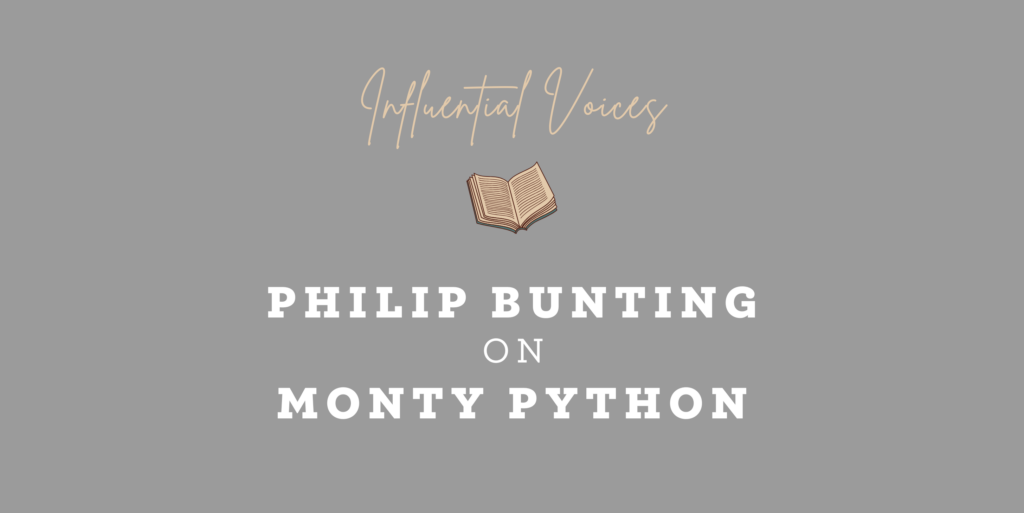‘Always look on the bright side of life, di-du, di-du, di-du, di-du’ … sang my old man, as hellishly cold, wet, horizontal sleet pelted through the opening in the hood of my inept cagoule and down the back of my neck. “Come on, you pansy,” he bantered at the eight-year-old me, as we slowly willed our way towards the top of one of the Lake District’s treeless fells – during what was supposed to be Spring – “we’re not dead yet!”, he went on, “a moose once bit my sister!”, and on, and on.
You see, amid my many other failings, I was born an Englishman, in the cold, cruel north of the 1980s. In a north “Harried by Thatcher” and way too much rain, you quickly learned to laugh, or you learned to cry.
So, I have my father to thank for a covert (and bloody persistent) introduction to a particularly useful way of translating and responding to life’s fells and dales. A daily indoctrination into a world of nonsense, non-sequiturs and sublime wisdom — largely through quotes he’d picked up off the telly a few years previous – was a pretty erudite introduction to the writing of Monty Python.
While their prose has been lodged in my mind for as long as I can remember, it was not until my early 30s, when I began writing professionally, that the Python’s work had the most profound influence on me.
You will find my work in the children’s section of your local bookshop, but unlike the majority of authors on these shelves, I do not write books for children. My medium is the picture book — a 30-page format that sits somewhere between board book and early reader — but I do not see my audience as the child; rather I am writing for the young parent. The sleep-deprived, fatigued, raisin-encrusted, post-work progenitor, desperately seeking to grasp a sliver of quality time with their child. My work seeks to bring a little more enjoyment to bedevilled booktime readers, through books craftily masquerading as children’s stories. All the while, heavily under the influence of Cleese and company.
There are five ideas I’ve received from the collective writing of Monty Python, over the years. Here they are, subtitled under questionably applicable quotes.
-
King Arthur: “I am your king!” Peasant woman: “Well, I didn’t vote for you.”
Fear nothing. Throughout the many and varied scripts of Monty Python, one thing remains constant — no notion, idea or belief is given its due. And indeed, the minute you think a thing has been respected, that thing has been duly dacked and cracked across the buttocks with a stiffly starched tea towel. This truly egalitarian and fearless irreverence (in the truest sense), delivered with good will and humour, is the thing I love most about the Python’s collective writing.
-
“Have you confused your cat recently?”
Be silly. In the often cynical, anxious, self-loathing culture we’re enduring, the Python’s writing can come across as somewhat prelapsarian in its silliness. But for me, this quality in their work cuts to the core of what it is to be alive, to be human, to struggle, to laugh and to come to terms with the marvellous, fleeting beauty of it all.
-
“And now for something completely different …”
Not every piece of work has to be your best. Not all of the Python’s work stands up today (in fact, some of it is unwatchable), but their positive contribution to our culture remains unparalleled in their genre. As a writer and general creative type, the relief I can derive from this idea — ultimately an antidote to writer’s block and perfectionism — is invaluable.
-
Brian: “Excuse me, are you the Judean People’s Front?” Reg: “Fuck off! We’re the People’s Front of Judea.”
Don’t take yourself too seriously (another great cure for a creative rut).
-
‘Tonight, instead of discussing the existence or non-existence of God, they have decided to fight for it.’
Context is everything. The Python’s go-to device was juxtaposition – the more sober the context, the more ridiculous the premise and delivery. And through language – contrasting highly verbose, intellectual references with everyday colloquialisms – their writing drags out the ridiculousness of both.
For me, the collective writing of Monty Python is an exploration of the boundaries of the thing that connects us all – humanity – through humour. Their persistent and profound sense of bathos, delivered with a laugh, is deeply human, beautiful and useful. As a ‘par-crucified’ Eric Idle once noted, ‘You come from nothing, you’re going back to nothing. What have you lost? Nothing! So, always look on the bright side of life…’
About the Writer
Philip Bunting is an author and illustrator based in the Noosa hinterland. His first book Mopoke was awarded Honours in the CBCA Book of the Year Awards 2018. His latest book How Did I Get Here? is an unauthorised biography of you.

